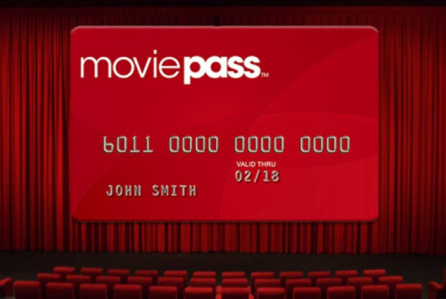
After a disastrous prelude to the weekend that saw its subscription ticketing service sidelined because of a cash crunch and related app outages, the bleeding continued today for MoviePass.
Stock in its parent company, Helios & Matheson, plummeted an eye-popping 60% on the day, closing at 80 cents a share. During the trading session, it dropped below the $1 mark for the first time since a 1-to-250 reverse stock split took effect a week ago. The split had been engineered with the express purpose of keeping the stock above $1. Briefly, it worked, and shares returned to the $20-plus level it enjoyed last fall amid optimism about its chances of being the movie-theater answer to Uber. In just five trading sessions, it has lost more than 95% of its value.
The reason the $1 mark is significant is that if the stock trades for 30 straight days below that level, it could be de-listed by the Nasdaq within a few months’ time. That would be a devastating blow to MoviePass, restricting the company’s access to capital and its maneuverability even as it adds subscribers and looks to punch above its weight.
Stocks that are de-listed can trade over the counter or via the pink sheets, but no reputable companies — certainly with the ambitions of MoviePass — trade their stock there. Being on the Nasdaq has conferred a degree of tech sheen and enabled top executives to cite the early days of classic disruptors like Amazon and Netflix when skeptics questioned its viability.
The business model of MoviePass has come under harsh scrutiny of late. It charges subscribers $10 a month and, especially in high-volume seasons like the summer, must pay far more than that in order to acquire tickets and fulfill the order. The popularity of Mission: Impossible – Fallout prompted last week’s outage, which stemmed from the $5 million emergency, high-interest loan the company obtained. The Tom Cruise sequel, one of the most popular movies of the summer, appeared to be specifically blocked from the site at various times.
In June, the company said it faced a cash deficit of $45 million due to the brisk pace of summer moviegoing. But just last Tuesday, Helios & Matheson chairman Ted Farnsworth told a business conference audience that by the end of 2018 the company would control 50% of all movie tickets sold in the U.S. It currently has more than 3 million subscribers and projects having 5 million by year-end.

